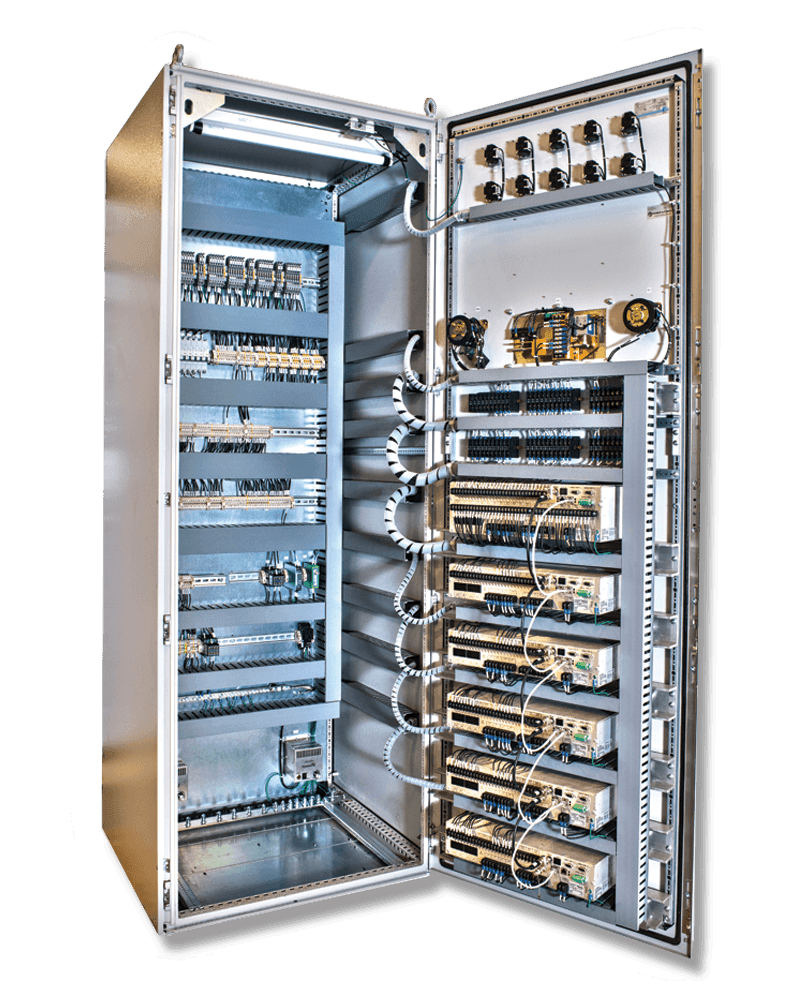-1.png?width=300&name=Copy%20of%20PanelShop.com%20Template%20(1)-1.png) Case in point: A major oil and gas company began routine inspections of its pipeline network, using the same physical device, i.e. “the pig." Instead of sending the raw data to human analysts and waiting for analysis, it was sent to a machine learning solution. The result was identification of a severe fault in a section that failed as soon as the crew began the sandblasting procedure. Due to timely identification, the company saved at least $10 million which would’ve been the cost of damages as the section ran through an almond grove.
Case in point: A major oil and gas company began routine inspections of its pipeline network, using the same physical device, i.e. “the pig." Instead of sending the raw data to human analysts and waiting for analysis, it was sent to a machine learning solution. The result was identification of a severe fault in a section that failed as soon as the crew began the sandblasting procedure. Due to timely identification, the company saved at least $10 million which would’ve been the cost of damages as the section ran through an almond grove.
These were just the results of a single study. Let’s take this up a notch by considering the 2.7 million miles of pipeline that runs through North America. It has been found that nearly 2/3 of Americans live within 600 ft. of a pipeline. In most cases, local authorities are left scrambling for help when a fault occurs as their maps only hold accuracy up to 500 ft. It was reported by the Pipeline and Hazardous Materials Safety Administration (PHMSA) that between the years 2006 and 2015, pipeline incidents grew by 26.8%. These incidents involved serious injury, death or property running over $50,000. On average in 2015, there was almost one incident per day occurring.
What does the occurrence of such incidents in the face of stringent safety standards and investments worth billions of dollars mean? Simply, the current system of maintenance is not effective enough to accurately predict the onset of faults.
Data
The detection methodology isn’t as big as an issue; rather it’s the use of the data gathered by the pig that is the point of concern. Some anomalies simply can’t be identified directly through the technologies currently available, requiring in-depth correlation & analysis of the data. This doesn’t mean the blame is being shifted to the data scientists, as they work around well-established practices and have experience that helps them identify problems within a seemingly unlimited stream of data. The last part forms the larger issue. It was revealed that only 4% of the collected data is utilized when it comes to managing pipelines.
All signs point to one direction: the gargantuan size of data.
There is an impending crisis which will take full effect once the industry’s most seasoned experts retire. Some of these experts hold extraordinary skills that are simply too hard to find replacements for. So why don’t we bring computers in? Yes, surely, but greatly increased processing power doesn’t make computers good at solving problems that require learning ability, judgement and observational skills.
Machine Learning
The gap between the skill set held by experienced specialist and repetitive processing power offered by computers is bridged by the concept of Machine Learning. Since 2014, OneBridge Solutions has been providing its data analytical services to the Oil and Gas sector, with its platform built on top of Microsoft Azure Cloud.
Machine Learning, when combined with the scalable resources of cloud technology make a perfect combination, helping deal with heaps of data generated by the pig. The best part of such a solution is that it is presented within the Software as a Service model and is thus easily implementable and manageable by various clients.
The features are aligned against the “state” of the pipeline system, resulting in the creation of a new “state” which can then be visualized on a 3D image. Through cognitive integrity management, such virtual images can be stitched together to form entire pipeline systems that can then be analyzed within minutes rather than weeks.
The users of the system can simply drag-and-drop inline inspection tally sheets into the system, from whereon they are ingested and normalized within minutes. Machine learning also allows integrity management teams to gain insights into the entire pipeline without spending too much time skimming through the data.
In addition to increasing the speed of operation, Machine Learning can also improve the precision of data, increasing the operational effectiveness and enhancing the threat detection ratio. Through effective utilization of data presented by the pig, and presenting it in a swift, comprehensive and accurate manner, Machine Learning gives room to experienced specialist to analyze and further refine the results. The end-result would be operational crews that are armed with better data, resulting in the need to cover less ground and ultimately less disruption at the work site.




.png)
